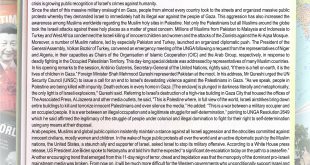The historians believe that Iqbal conceived the idea of Pakistan and Quaid-e-Azam matured this idea into reality
‘I hope you will pardon me for this apparently academic discussion. To address this session of the All-India Muslim League you have selected a man who is not despaired of Islam as a living force for freeing the outlook of man from its geographical limitations, who believes that religion is a power of the utmost importance in the life of individuals as well as states, and finally who believe that Islam is itself destiny and will not suffer a destiny! Such a man cannot but look at matters from his own point of view. Do not think that the problem I am indicating is a purely theoretical one. It is a very living and practical problem calculated to affect the very fabric of Islam as a system of life and conduct. On a proper solution of it alone depends your future as a distinct cultural unit in India. Never in our history has Islam had to stand a greater trial than the one which confronts it today. It is open to a people to modify, reinterpret or reject the foundational principles of their social structure; but it is absolutely necessary for them to see clearly what they are doing before they undertake to try a fresh experiment.’
‘Nor should the Hindus fear that the creation of autonomous Muslim states will mean the introduction of a kind of religious rule in such states. I have already indicated to you the meaning of the word religion, as applied to Islam. The truth is that Islam is not a church. It is state, conceived as a contractual organism long before Rousseau ever thought of such a thing, and animated by an ethical ideal which regards man not as an earth-rooted creature, defined by this or that portion of the earth, but as a spiritual being understood in terms of a social mechanism, and possessing rights and duties as a living factor in that mechanism. The character of a Muslim state can be judged from what the Times of India pointed out sometime ago in a leader on the Indian Banking Inquiry Committee. ‘In ancient India,’ the paper points out, ‘the state framed laws regulating the rates of interest on money loaned, Indian Muslim states imposed no restrictions on such rates.’ I, therefore, demand the formation of a consolidated Muslim state in the best interests of India and Islam. For India it means security and peace resulting from the internal balance of power; for Islam an opportunity to rid itself of the stamp that Arabian Imperialism was forced to give it, to mobilise its law, its education, its culture, and to bring them into closer contact with its own original spirit and with the spirit of modern times.’
‘Is religion a private affair? Would you like to see Islam, as a moral and political ideal, meeting the same fate in the world of Islam as Christianity has already met in Europe? Is it possible to retain Islam as an ethical ideal and to reject it as a polity in favour of national polities in which religious attitude is not permitted to play any party? This question becomes of special importance in India where the Muslims happen to be a minority. The proposition that religion is a private individual experience is not surprising on the lips of a European. In Europe the conception of Christianity as a monastic order, renouncing the world of matter and fixing its gaze entirely on the world of spirit, led by a logical process of thought, to the view embodied in this proposition.
The quotes from Allahabad Address clearly demonstrate that Iqbal was conceiving a Muslim state which would be autonomous but a part of Indian Federal Scheme. Those who derived that Iqbal demanded a separate Muslim state in his address are wrong. Iqbal in his famous address discussed about defence, provincial autonomy, 33 per cent representation in central assembly and other national political and social issues of India. Iqbal in his Lahore address in 1932 reiterated his thoughts about Muslim India within India so that the Muslim majority provinces can prosper to their full potential.
Chaudhary Rehmat Ali distributed a pamphlet ‘Now or Never’ at Cambridge University in January 1933, and introduced his scheme of Pakistan. Iqbal wrote a letter to Prof. Thompoten on March 4, 1934 in which he said ‘Pakistan is not his scheme and he still visualises a Muslim autonomous state within the federation of Indian.’ After the 1937 elections the Indian Congress established provincial governments. The Muslims were persecuted by the Congress. The Muslim League leaders reached to the conclusion that Muslims cannot coexist with Hindus and thought of independent Muslim state. At this stage, Allama Iqbal also change his mind and wrote letters to Quaid-e-Azam in 1937 and suggested a separate homeland for the Muslims, because it was not possible to prosper under Hindu domination. Iqbal wrote on June 21, 1937 to Jinnah, ‘A separate federation of Muslim provinces reformed on the lines I have suggested above, is the only course by which we can secure a peaceful India and save Muslim from the domination of non-Muslims.’ On May 18, 1937, he wrote, ‘At this juncture your genius will discover some way out of the present difficulty. In another letter in 1938 Iqbal wrote to Jinnah, ‘I believe that a political organisation which gives no promise of improving the lot of the average Muslim cannot attract our masses. Allama Iqbal unfortunately died in 1938. Iqbal letters to Quaid-e-Azam were published with the foreward of the Quaid. The Jinnah’s letters to Iqbal were not available in the record. This revelation surprised Mr. Jinnah who wished to include those in the book.
Quaid-e-Azam wrote in the foreword: ‘His (Iqbal) views were substantially in consonance with my own and had finally led me to the same conclusion as a result of careful examination and study of the constitutional problems facing India and found expression in due course in the united will of Muslim India as adumbrated in the Lahore Resolution of the All India Muslim League popularly known as the ‘Pakistan Resolution’ passed on 23rd March 1940.’
Iqbal contested election and was elected to the Punjab Legislative Assembly in December 1926. He played outstanding role in the assembly and protected the rights of Muslims. He attended the Second Round Table conference in September 1931. Iqbal was elected president Punjab Muslim League and he organised the League in Punjab, particularly during 1937 elections.
The dream of Allama Iqbal materialised in 1940 when All India Muslim League passed Lahore Resolution popularly called as ‘Pakistan Resolution’. On this historic occasion Quaid-e-Azam said to Matlub Sayyid. ‘Iqbal is no more amongst us. But had he been alive, he would have been happy to know that we did exactly what he wanted us to do.’
In the light of Allahabad Address of 1930 and the letters written to Quaid-e-Azam in 1937 and 1938 one can to the conclusion that Allama Iqbal laid the foundation of Pakistan on which the great Quaid constructed the country.
 Jahangir's World Times First Comprehensive Magazine for students/teachers of competitive exams and general readers as well.
Jahangir's World Times First Comprehensive Magazine for students/teachers of competitive exams and general readers as well.


